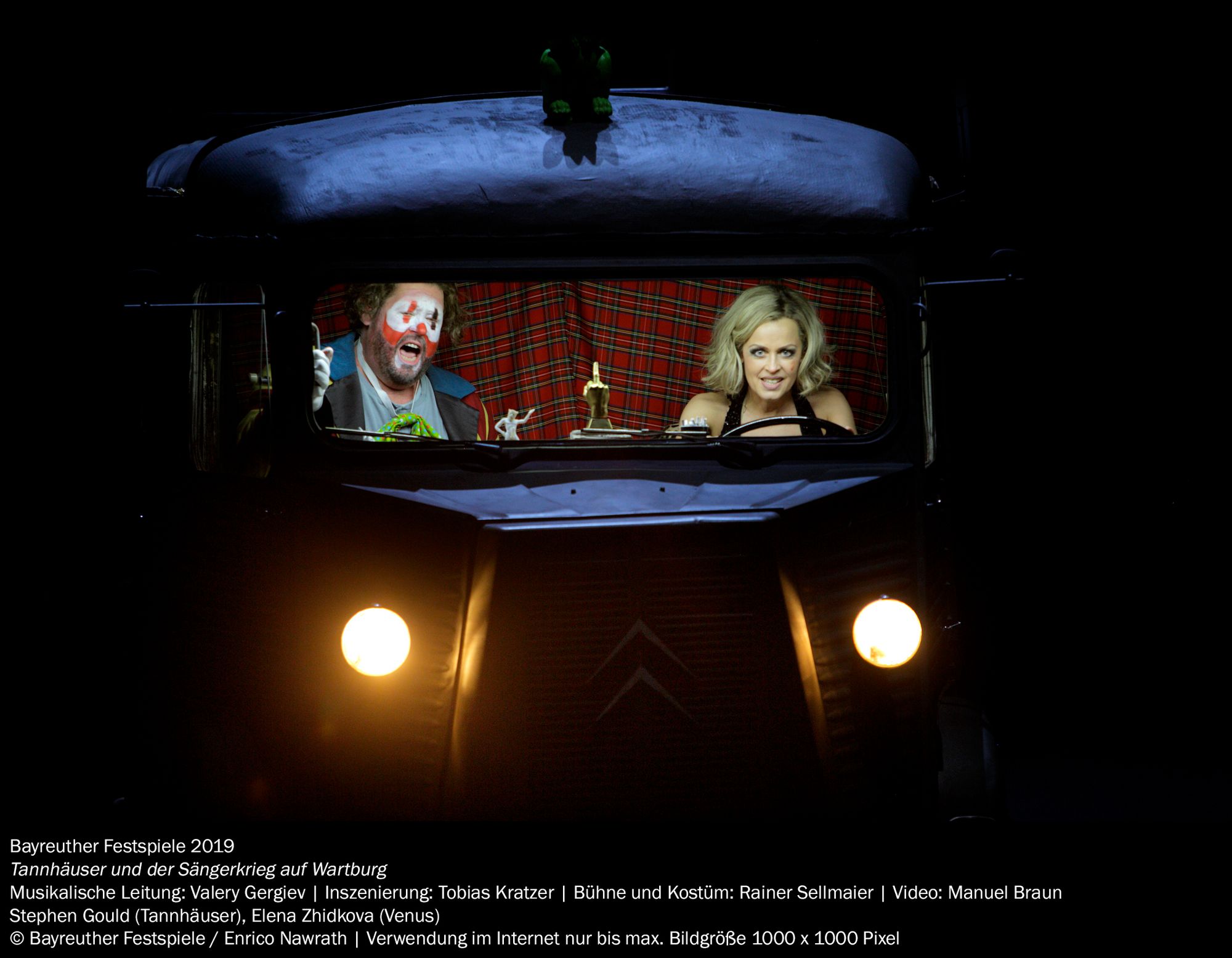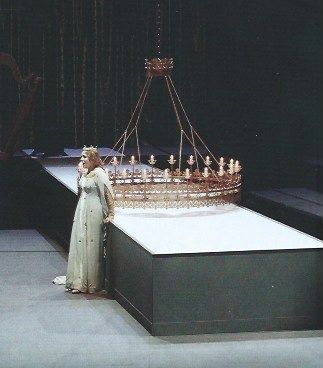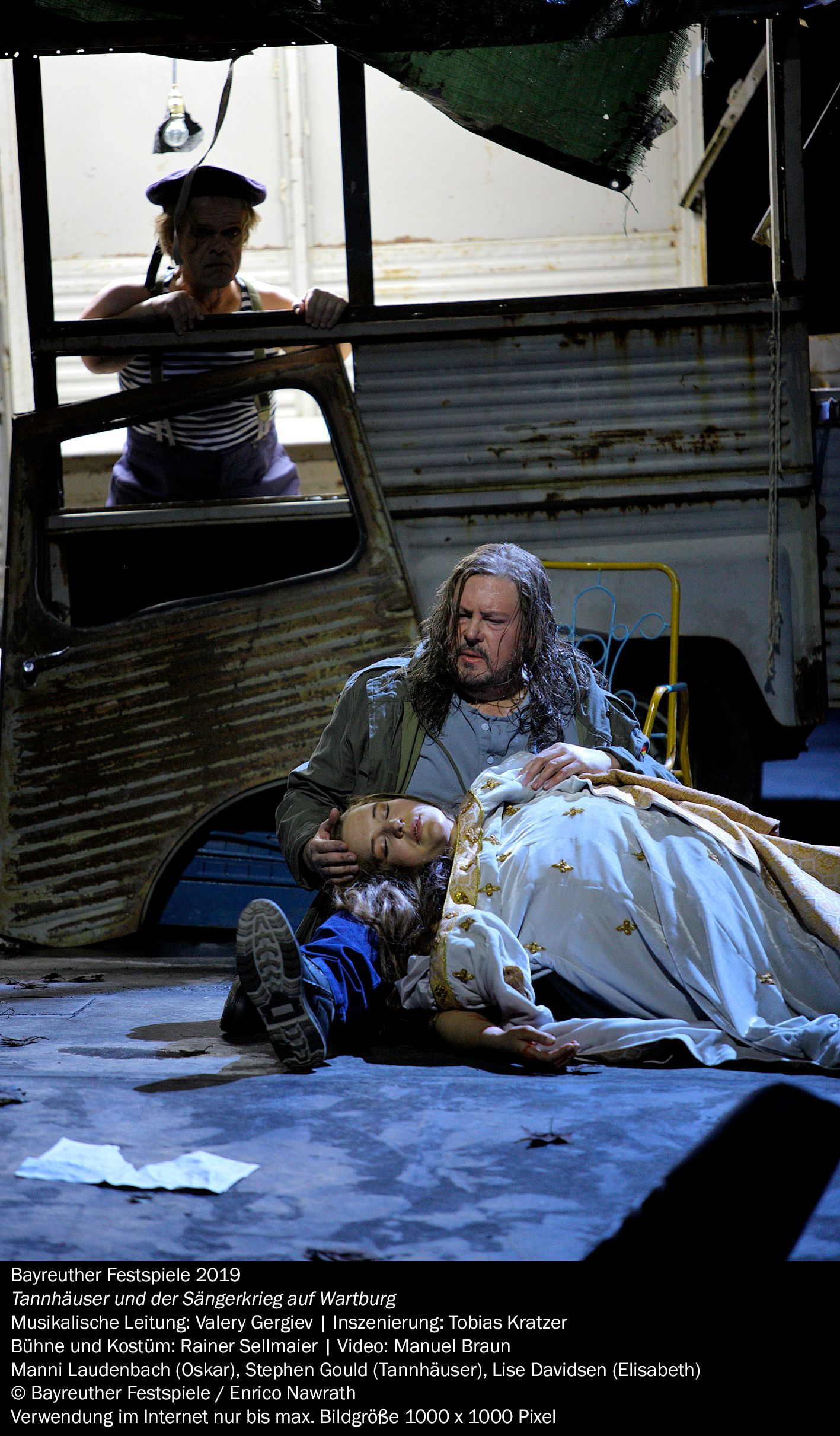An Angel versus a Whore?: Tobias Kratzer's manic, off-piste Tannhäuser
From the off, it is clear this is no ordinary Tannhäuser ...

This is a great opportunity to enjoy a terrifically inventive production of Tannhäuser from Tobias Kratzer, staged at the Wagner shrine of Bayreuth in 2019. From the off, it is clear this is no ordinary Tannhäuser. There is a video of a motley crew on their way to the Green Hill in a ramshackle van - Venus in sparkly black with a clown (who turns out to be Tannhäuser himself), a dwarf (referring to Oskar Matzerath, from Günther Grass' The Tin Drum) and a bearded drag artist, a tribute to the cabaret artiste Le Gateau Chocolat. They rob a Burger King en route; we are a long way from the majesty of the Wartburg. Video, handled by Manuel Braun, as in Frank Castorf's Bayreuth Ring, is used to fine effect. This is very much a Tannhäuser you want to see as well as hear.
Worth noting, perhaps, that Tannhäuser is the least performed of the works of Wagner's accepted canon at Bayreuth. This was also Valéry Gergiev's Bayreuth debut (I note for at least one performance of the run he was indisposed for personal reasons and replaced by Christian Thielemann). The original Venus, Ekaterina Gruberova, pulled out; one cannot know what she would have brought to the part, but her replacement Elena Zhidkova is fantastic, all provocative sensuality with an implied leaning towards BDSM. Stephen Gould is a brilliantly strong Tannhäuser, finding the pathos behind his clown's face easily.
But perhaps the performance belonged to the Elisabeth: Lise Davidsen was making her unforgettable Bayreuth debut here. On disc, her recital of Richard Strauss Vier letzte Lieder plus Strauss songs and "Es gibt ein Reich" from Ariadne auf Naxos plus excerpts from Tannhäuser with the Philharamonia and Salonen is magnificent (see also links below, including to Spotify). Before Davidsen enters, we see her backstage with a stagehand; the mixing of realities continues. She is in terrific voice; she has all the power (I know - I sat only a few feet away from her once in a performance in a small room in central London at a press event celebrating the release of her Decca Strauss/Wagner disc). To emphasise the contrast between the worlds of the Wartburg and the world outside, she is very much in more expected attire, wearing a crown and with a floor-length gown. If Venus is our Whore, here is our Angel.

Here she is, sadly not in this Bayreuth production, but on that Decca Salonen/Philharmonia disc, in "Dich, teure Halle":
Davidsen's "Almächt'ge Jungfrau" in the Bayreuth production is unforgettable, a real prayer from a place of dishevelled pain. Zhidkova was the perfect foil, as different from Davidsen physically and of garb as she was vocally.
If the production is Kratzer's reaction to what he calls Wagner's "self-mystification," it by its very nature asks huge questions. Kratzer paces the first act manically in showing us these "outsiders", to contrast with the stasis of the second. But for that second act, Kratzer breaks the stage in two, bringing back the projection aspect, offering a backstage, black-and-white "second story". DVD enables us to experience this cutting backwards and forth brilliantly.
Venus' crashing of the Song Contest is as hilarious as it is daring; we see her accomplices looking on, the drag artist now dressed in a a rediculously fluffy, flouncy yellow outfit. For the final act, we find ourself in a world that is falling apart - there is something of the loneliness of certain parts of the final act of Parsifal here, of the desolation and destitution of a world torn asunder:

If Stephen Gould is a fine, strong Tannhäuser, so Manfred Eiche excels as Wolfram von Eschenbach. Although Valéry Gergiev has certainly been active in Wagner, it would be unfair to say he is known for it - but he shows great understanding of the score. Manfred Eiche, who had also excelled in the Castorf Ring, excels as Wolfram.
The Shepherd, incidentally, is a passing (female) cyclist, played by Katharina Konradi.
Despite some phenomenal Tannäusers of the past (I myself have a penchant for the 1951 Bayreuth under Cluytens with Brouwenstijn, Windgasssen, Fischer-Dieskau and Greindl, but that appears to be difficult to obtain presently), this is very much a Tannhäuser for today. And with such a strong cast and of course the beautiful sound of the Bayreuth Orchestra and its strong chorus, what's not to like?
